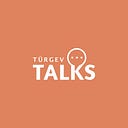Who is the happiest man in the world? — BY IBTISAAM AHMED
In Book 1 of Herodotus’s The History, a wealthy king named Croesus summons the sage and lawgiver, Solon to his court. Croesus asks Solon who the happiest man in the world is, foolishly believing that this man is himself. Solon, however, quickly dispels Croesus’s illusions and says that the happiest man is a father in Athens who was killed in battle in the prime of his life. The second happiest men are two young brothers who died in their sleep after taking their mother to a village festival — pulling her cart like a pair of oxen.
What are we to make of Solon’s response? And how would this have been understood by people of the Mediterranean world in the fifth century BCE?
The first step is to pay attention to the words used by Herodotus who does not use one specific word to describe the object of Croesus’s desire. Instead he uses a number of closely related terms which had come to him from the Homeric period like olbios and makarios which mean something similar to the word “blessed”. In Homer’s hymns and Hesiod’s epics, these complex terms are used frequently in reference to “the heroes, to the gods, and to those who enjoy their favour, indicating divine sanction, freedom from suffering and general prosperity, both material and moral”.
Thus, those who are olbios and makarios are not simply “happy”, they are favoured or fortunate — blessed to live with fortune on one’s side.
The next word used by Herodotus is the adjective eudaemon (and the noun eudaemonia) which indicates a flourishing, favoured life. We first see this word appear in the work of Hesiod who describes “happy and lucky the man (eudaemon te kai olbios) who knows and keeps the holy days, who understands the omens, who avoids transgression, and who does his work without offending the deathless gods.”
It is the state of eudaemon that Croesus is desperate to achieve and yearns for. The term eudaemon is made up the Greek word eu for “good” and daemon which is often translated as spirit, but could be understood as a tool for divine activity or a kind of power or force that drives man forward or acts against him. As one scholar observed, “For if to have a good daemon means to be carried in the direction of the divine, to have a bad daemon, a dysdaemon… is to be turned aside, led astray, or countered by another.”
It seems, therefore, that the earliest account of “happiness” links it closely to fate. Interestingly enough, this connection continued way past Herodotus. In almost every Indo-European language, the modern word for “happiness” is linked to luck, fortune or fate.
The word “happiness” in English comes from the Middle English and Old Norse, happ which means chance or fortune. The French bonheur desrives from bon (good) and heur (fortune or luck). The Middle High German Glück is still the current German world for both happiness and luck. The Italian, Spanish and Portuguese felicità, felicidad and felicidade are all derived from the Latin felix meaning luck or sometimes fate.
This information gives us a better understanding of what Solon might have meant in answering Croseus’s question and also highlights how inadequate the modern term “happiness” is in considering questions on “the good or happy life” famously posed by ancient philosophers. More importantly, it may give us pause for reflection when thinking about the question, “are we happy?”. It is clear that any real and meaningful consideration of this question must take into account the existence of blessedness, human flourishing and destiny.
